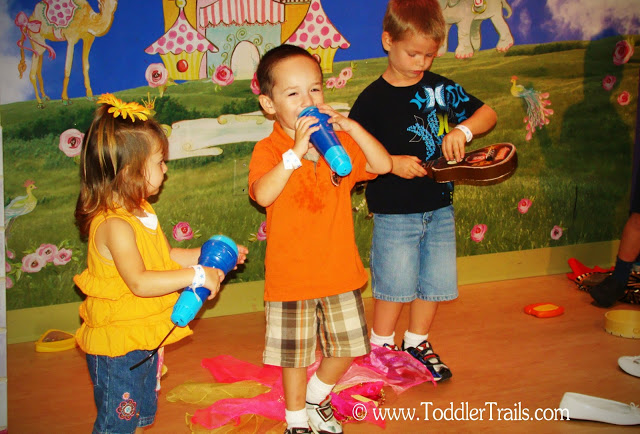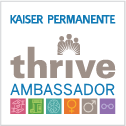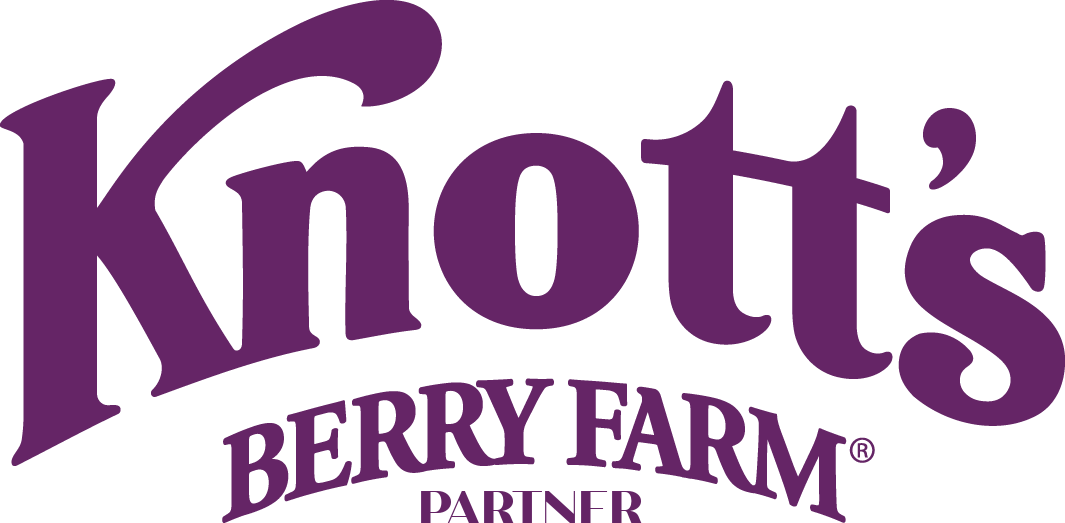Linda Hunter, Senior Director of Education for Pretend City Shares Insight on How to Enhance Your Child’s Development with Music:
Not only is music great fun for children, but it is also a powerful tool to reinforce early learning. I want to share with you three powerful ways that you can use music to help your child progress in their discovery of the world.
Music expands language skills. Rhythm is a key component of music and is what helps children learn to develop the cadence of sentences. It also demonstrates how to connect words in different (and sometimes silly) ways, which helps to increase children’s vocabulary through trying out new words and new sounds. An important part of the expansion of language and literacy skills is phonics, which is introduced in a fun way for children through rhyming. If a child rhymes “cat” and “hat” in a tune, he is able to recognize that they both have letters that sound the same. He may not understand what he is doing at first, but when he goes to school and starts learning the sound of letters, he is able to access the old information that is stored up in his brain to help him connect the sounds much faster.
Music develops listening skills. This may be a skill you never connected with music, but it really does train the brain to listen. A child must be intentional if they want to “play” with the song. Watch your child next time she hears a song. The most basic thing is that she needs to listen to learn the words to a song. She has to intentionally make herself listen to the words to accomplish the things that the song is asking her to do. So if she wants to participate, she has to pay attention. This is a critical learning skill. On the flip side, many of the songs that children are participating in are full of pre-math skills. It can include things like counting, but more subtlety, they are learning to listen to repeating patterns in music and the sequencing of things, which develops a great math foundation.
Music builds relationships. Singing together and dancing with your child is a terrific “play-equalizer” between children and adults. As you raise your child, music becomes an important element of creating moments where you are truly enjoying something together. When you are singing together, you both can laugh at the silly parts and dance together – it’s an innately joyful time that is yours for the taking. In addition, it’s an important way to introduce your child to their relationship with the world around them. Music is an important way that culture is translated from one generation to the next. Songs are cultural stories that get passed down. It is a wonderful thing for you to introduce your child to different cultures by exposing them to a variety of music like African drums, or the lively music found in Germany or Brazil. By giving them fun musical experiences from other cultures, you are opening up their world in an amazing way! At Pretend City, the ambient music that we play each day is a wide variety of cultural music. We believe that music is a rich way to introduce children to the discovery of cultural diversity.
As an extra bonus, I thought I would share with you a nice tip that I use as a mother, grandmother and early childhood educator. For me, I use music all of the time to transition children from one thing to the next. It’s a handy tool, as you can make up any song for any activity and get a positive response. For example, you can make up a “pick up the toys” song. I’m pretty sure if you do that, you may get more help. Think about the everyday things you do that you want to start reinforcing as a habit in your child’s life and add a tune to it: “Get Ready for Bed” or “Brushing Your Teeth.” It makes the task much more pleasant for you and your child – and who knows, they may end up passing that little song down to their children one day.
At the end of the day, I encourage you to really enjoy music with your children. When you are dancing at home with your child, no one is watching you. Let loose and have a great time with them. They will love seeing that side of you.
Linda Hunter, MA, LMFT
Senior Education Director and Chief Operations Officer, Pretend City
Linda earned her Bachelor of Arts Degree in Human Development and Master’s Degree in Marriage, Family, and Child Therapy from the prestigious Pacific Oaks College in Pasadena. Linda joined Pretend City in 2002 prior to its opening and has over 40 years of experience working with children and families in both the fields of early childhood education and family therapy.
About Pretend City Children’s Museum
Pretend City Children’s Museum features a small, interconnected city designed to “build better brains” through purposeful play, hands-on learning experiences, role playing, and educational programming. As a non-profit 501(c)(3) organization serving all children, it depends on community-based funding and guest support. Through 17 interactive exhibits and activities guided by a highly trained professional staff, children learn foundational math, reading and science skills, while fostering curiosity, creativity, critical thinking, problem solving, organization, teamwork, self-confidence and socialization. The museum is a unique community resource offering developmental screenings and tools for families, educators and community agencies working to ensure that each child gains the experiences needed to discover their potential and build toward a productive and fulfilling future. Pretend City Children’s Museum is located at 29 Hubble, Irvine, CA 92618. For more information, please visit www.pretendcity.org.






